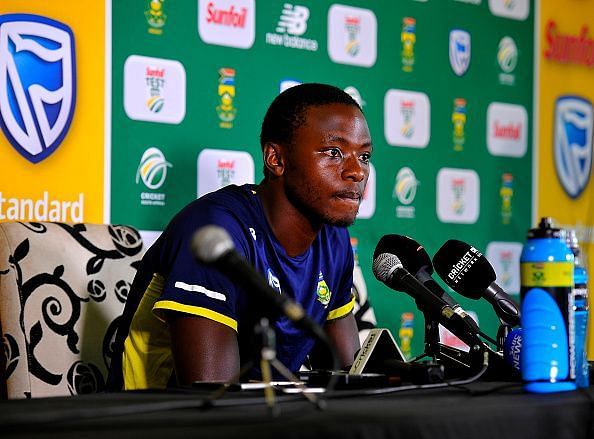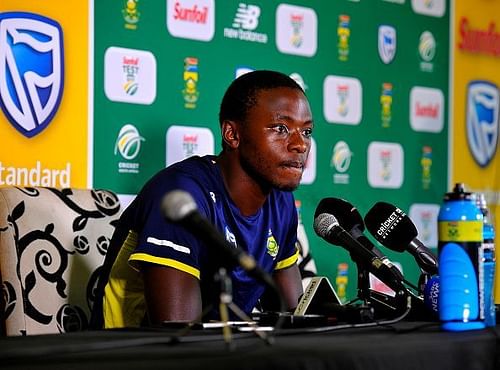
The curious case of Kagiso Rabada

Age 22. International wickets 232. The future looks really bright for Kagiso Rabada.
The lanky fast bowler announced himself on the international stage on February 26, 2014. It was the 2nd semi-final of the U19 World Cup. Australia had restricted South Africa to 230/9. What followed that was a ferocious spell of fast bowling. Rabada returned with mind-boggling figures of 6/25 and SA comfortably reached the finals, which they eventually won. The signs were ominous for Rabada.
Fast Forward to July 10, 2015, South Africa were touring Bangladesh and Rabada was finally handed ODI debut. Not many would have imagined what was to follow. An ODI debut with stunning figures of 6/16. Kagiso Rabada had arrived at the highest level and all this at the age of 20.
South Africa have never been short of fast bowling stocks. From Allan Donald to Makhaya Ntini and then Dale Steyn, they have always found ferocity in their ranks. Rabada is expected to carry forward this legacy.
Playing with Dale Steyn, Morne Morkel and Vernon Philander, the rookie bowler has been lucky to learn from the best. With Dale Steyn fighting injuries one after the other, Rabada has, time and again, proved his worth as the leader of the peck.
He has the structure of a fast bowler. He's got pace behind himself. He makes the old ball talk. He loves bowling longer spells. Rabada's got everything required to excel at the international arena as a fast bowler. With age on his side, he is only going to evolve with time and experience. The pacer, however, needs to be wary of.getting carried away.
As a fast bowler, the adrenaline rush is inevitable. For someone like Rabada, in his early 20s, bowling at 140 kph consistently, the aggression will always come into play. All that makes for a good contest between the bat and ball. It even puts life into Test matches. Over the period, there have been bowlers who are at their best, when charged up.
However, the ICC has changed its stance on players' conduct in recent past. One can only imagine the number of matches Shane Warne or Merv Hughes would have missed had the current ICC code of conduct been prevalent in their era. In trying to justify the tag of Gentlemen's game, ICC has gone overboard by curbing players' natural instincts.
Rabada has been at the receiving end on multiple occasions. He would have missed the remaining series against Australia had decision been not overturned.
A high octane series between two best teams in the world and the no. 1 Test bowler would have remained on the sidelines. Test cricket has already been losing its identity to t20. The crowds are hardly there. In such trying times, ICC code of conduct and the demerit point system are not helping the cause.
The ICC needs to look into the flaws in the system and its overall impact on the game. For now, players like Rabada need to be careful of their behaviour in the field. When you are the no.1 ranked bowler and currently leading the bowling attack against a team like Australia, there is a lot at stake. The series is locked at 1-1 and there is lot cricket left to be played.
For a player like Rabada, it's still the start of his career. The rules are for the ICC to change but until that time, he needs to learn and not let his potential be wasted by not playing. For South Africa to win this series, Rabada needs to put his focus back on cricket.
Of course, he will have to watch out for the Aussies who would be itching to have a go at him. They will leave no chance of getting under his skin. For now, everything needs to take the backseat. For now, cricket needs to prevail.